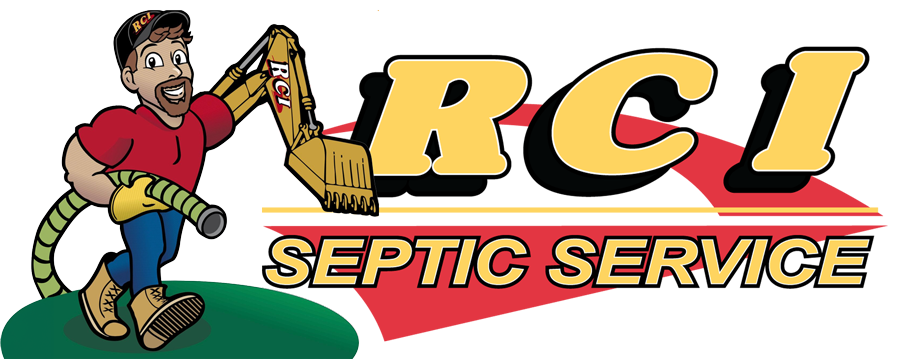The Ultimate Guide to Septic Tank Draining: Best Practices & Warning Signs
Septic tank draining is crucial to prevent costly backups and keep your system working efficiently. Ignoring this task can lead to failures and health risks. In this guide, we’ll explain why septic tank draining is important, how to know when your tank needs it, and the best practices to maintain your system.
Key Takeaways
- Regular septic tank draining is essential to prevent system overload, health hazards, and costly repairs, ensuring efficient function and longevity.
- Homeowners should recognize warning signs of a full septic tank, such as slow drains, foul odors, and sewage backups, and address them promptly to avoid major issues.
- Proper maintenance practices, including annual inspections and responsible waste disposal, are crucial for the health and efficiency of septic systems, helping to extend their lifespan.
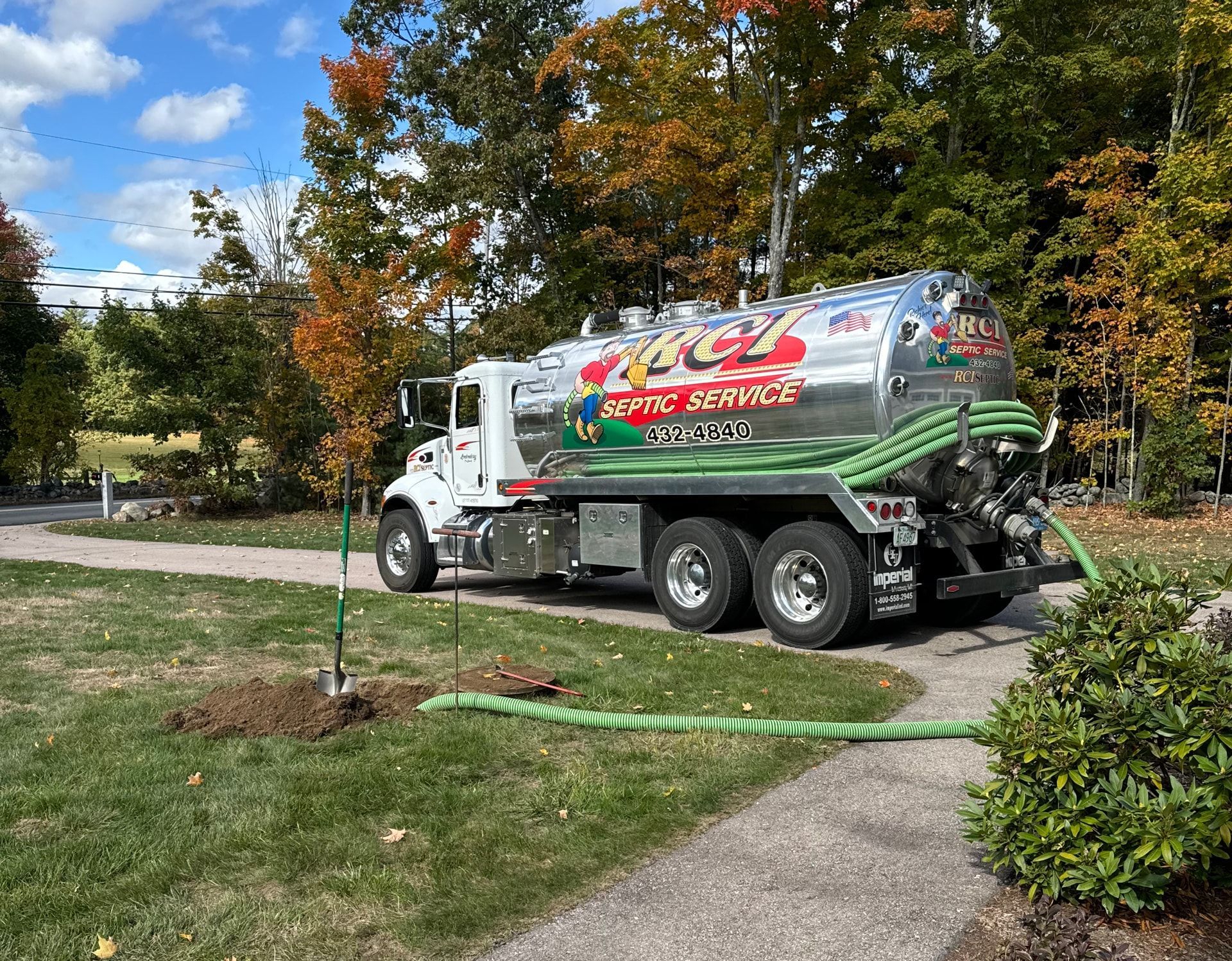
Importance of Regular Septic Tank Draining
Routine septic tank emptying prevents system failures and maintains proper function. Neglecting this task can cause system overloads, health hazards, and costly repairs. Regular maintenance helps avoid these issues, making it a cost-effective home maintenance approach.
One of the main reasons for regular septic tank pumping is to prevent the buildup of solids within the tank. These solids can clog the system and cause backups, leading to inefficient operation and potential damage. Scheduled maintenance extends the life of a septic system, ensuring efficient function for many years and preventing costly repairs.
Keeping your septic tank pumped ensures long-term care for your property. Regular pumping maintains efficiency and protects your investment in your home’s infrastructure.
Preventing System Overload
Draining the septic tank regularly manages waste buildup, preventing the system from becoming overwhelmed. Accumulating solids can block wastewater flow, leading to backups and failures. A regular pumping schedule keeps the system running smoothly.
Regularly scheduled drainings manage solids buildup, preventing the drainage system overload. This proactive approach keeps your septic system in optimal condition, reducing unexpected issues and ensuring proper wastewater processing.
Avoiding Health Hazards
Neglecting septic tank maintenance can cause groundwater contamination. Without regular pumping, untreated sewage can leach into the surrounding soil, posing a health hazard and risks such as gastrointestinal diseases.
Regular maintenance ensures your septic system functions properly and protects your family’s and community’s health. Recognizing early warning signs and taking action can prevent these hazards.
Enhancing Septic System Lifespan
Routine maintenance can extend the operational life of septic systems, often beyond 50 years. Regular pumping and inspection save homeowners from system failures and costly repairs.
Frequent maintenance reduces the risk of premature failures and costly repairs. Inspections detect minor issues early, ensuring prompt repairs.
RCI Septic Service specializes in installing new septic systems using high-quality materials for durability, ensuring that your investment lasts for decades. Adhering to a regular maintenance schedule prevents backups and ensures efficient operation, enhancing the system’s longevity and providing peace of mind.
Signs Your Septic Tank Needs Draining
Recognizing the early warning signs that your backed up septic tank needs draining can save you from significant headaches and expenses. Common indicators include slow drains, foul odors, and sewage backup. These signs suggest that the tank is nearing or has reached its capacity, requiring immediate attention.
Slow drains in sinks and toilets can be a major warning sign that your septic tank is full or there are blockages that need addressing. Persistent foul odors around your house or yard can signify that your septic tank has reached full capacity and requires immediate attention. Recognizing these symptoms early can prevent severe problems and costly repairs related to your septic system.
Understanding these signs and acting promptly can prevent severe problems and extend your septic system’s life. Below are detailed explanations of these warning signs.
Slow Drains
Slow water movement in drains and toilets often signals a septic tank backup. This issue usually arises when the tank is full or drain lines are blocked, preventing smooth water flow.
Timely inspections can prevent complications from slow drains. Regular checks help identify and resolve issues before they escalate, ensuring proper functioning.
Foul Odors
Persistent foul odors around the house and yard indicate septic tank issues. These odors, resulting from gases escaping an overfilled tank, require immediate professional attention.
Odors from the yard or around the septic tank also signal an overflowing system. Addressing these odors promptly prevents further damage and ensures system health.
Sewage Backup
Indicators of sewage backup include smelly dark water and slow drains. A blockage or overfull tank can cause sewage to back up into the home. If this occurs, stop using water, avoid flushing toilets, and contact a professional.
Wet spots in your yard may indicate sewage backup or standing water. Recognizing these signs early prevents extensive damage and costly repairs, ensuring your system remains in good working order.
How Often Should You Drain Your Septic Tank?
Knowing how often to drain your septic tank is crucial for maintaining its health. Key points to consider include:
- A typical household tank requires annual pumping to prevent clogs and backups.
- Frequency can vary depending on household size.
- Frequency also depends on the volume of wastewater produced.
A four-person household generally needs pumping every two years. Households generating more wastewater should pump more frequently to maintain system health and prevent solid accumulation.
Septic systems should be inspected every three years to identify and resolve issues early, ensuring proper functionality and preventing larger problems.
Large Households
Households with five or more members should pump the septic tank annually to manage waste effectively and to prevent a break in the system.
RCI Septic Service recommends yearly septic emptying for households of five or more people. Regular maintenance prevents larger septic system problems in high-occupancy homes.
Medium Households
A household of three to four people usually requires biennial septic tank pumping to prevent system failures and costly repairs. RCI Septic Service recommends emptying every two years for these households.
Following a two-year pumping schedule maintains a healthy septic system and prolongs its lifespan.
Small Households
For one to two-person households, pumping the septic tank every three years is advisable.
RCI Septic Service recommends septic emptying every three years for households of one to two people.
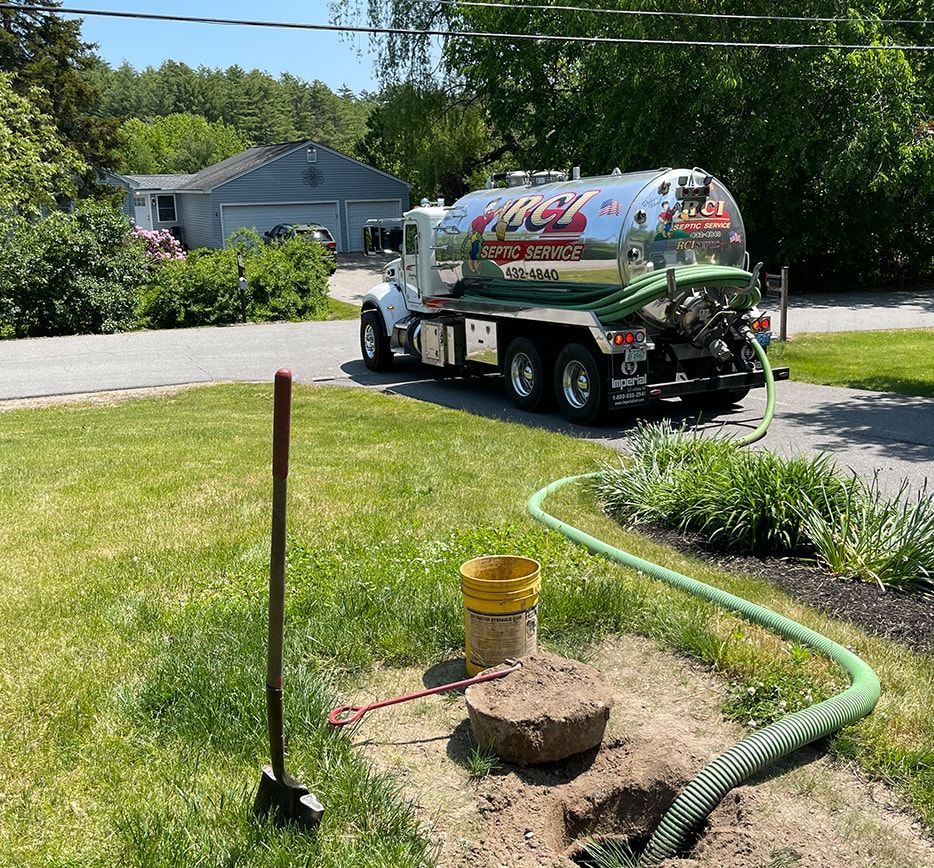
The Process of Septic Tank Draining
Draining a septic tank involves several steps to ensure efficient function: an initial inspection to assess the tank’s condition and pumping using specialized equipment to remove waste.
Post-draining maintenance tasks include checking the effluent filter and inspecting the drain field for any potential issues with filters.
Initial Inspection
The initial inspection assesses the tank’s condition and identifies potential problems like leaks or blockages, ensuring issues are addressed before pumping.
Checking for structural integrity, cracks, and evaluating sludge level are crucial steps.
Pumping the Tank
During pumping, the tank is emptied using specialized vacuum trucks to remove sludge and scum, ensuring efficient operation. Safety measures, including protective gear and proper ventilation, protect against harmful gases.
Specialized equipment safely removes solid waste during pumping. Clearing the area of obstacles and wearing protective gear are essential safety measures.
Post-Draining Maintenance
Regular maintenance tasks include:
- Regularly checking the effluent filter to prevent clogs and promote proper function.
- Inspecting the drain field to ensure there is no pooling water or sewage.
- Conducting regular inspections to catch potential issues early and maintain system efficiency.
Post-draining maintenance is essential for ongoing system health. Regular monitoring prevents backups and ensures efficient operation.
Common Causes of Septic Tank Issues
Understanding common septic tank issues helps you take preventive measures. Neglecting maintenance can lead to costly repairs. Signs of a failing system include slow drainage, persistent odors, and yard wet spots.
To prevent toilet clogs and backups, keep in mind the following:
- Only dispose of human waste and toilet paper in the toilet.
- Avoid excessive water usage, as it can overwhelm the tank and cause backups.
- Common causes of backups include tree root blockages and improper waste disposal.
Tree Roots
Tree roots infiltrate drain pipes, causing blockages and potential ruptures as they seek nutrients in the ground. High-pressure water jets can eliminate invasive plastic roots.
Tree roots can penetrate septic pipes, causing blockages and damage. Major infestations may require pipe replacement, while minor cases can be treated with water-jetting or mechanical cutters.
Improper Waste Disposal
Improper waste disposal significantly contributes to septic system issues. Grease, fat, and large food matter can cause blockages. Flushing unsafe materials leads to drain pipe clogs and emergency plumbing issues.
Disposing of cooking oils and harsh chemicals disrupts the bacterial balance, leading to operational failures. Proper waste disposal maintains efficiency, prevents backups, and ensures system longevity.
Excessive Water Usage
Excess water usage can overwhelm septic systems and plumbing system, leading to septic system overflow and septic system backups. Managing too much water usage can help prevent septic system backups and system overload.
By regulating water usage, you can maintain the efficiency of your septic system and avoid costly repairs.
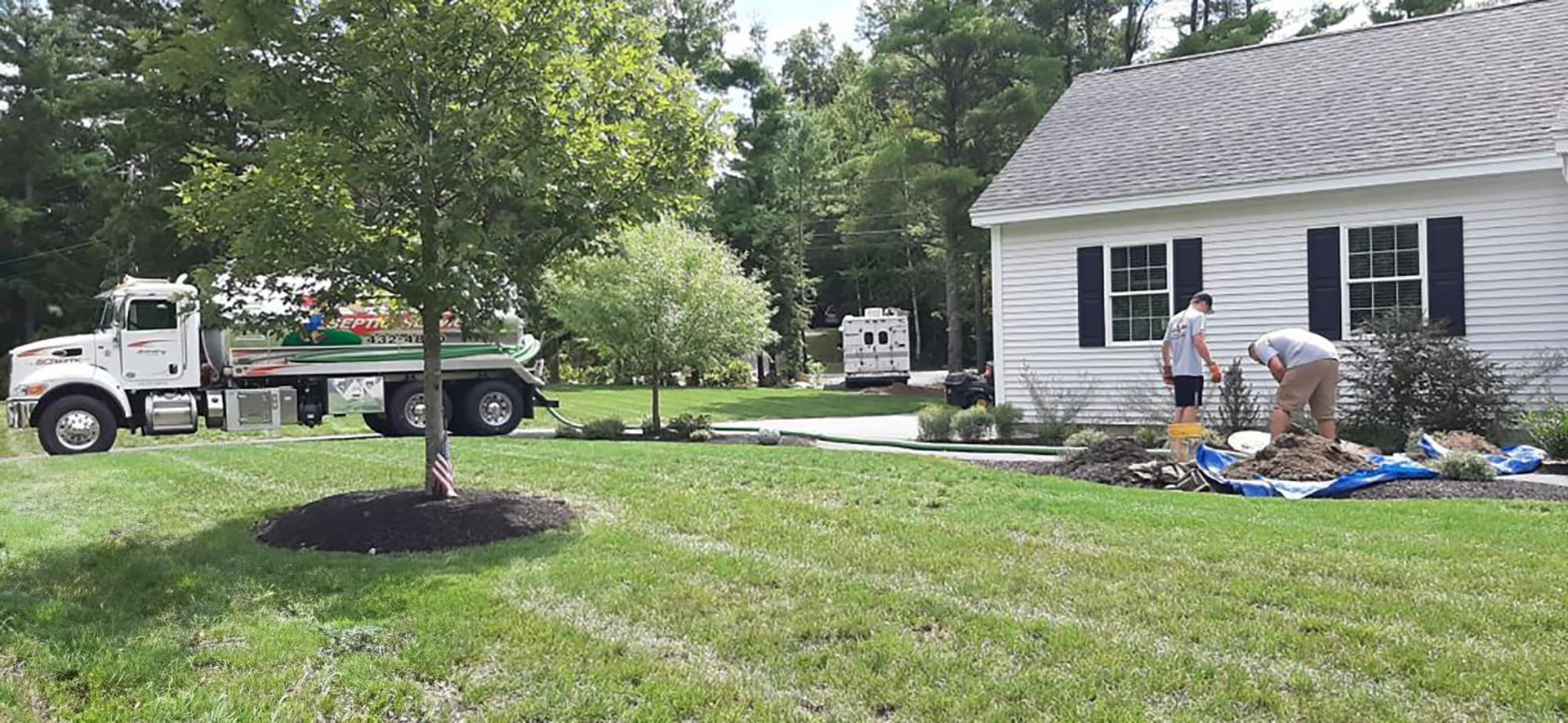
Tips for Maintaining a Healthy Septic System
Maintaining a healthy septic system requires regular maintenance and mindful practices. Key practices include:
- Regular septic system maintenance to minimize issues and extend lifespan.
- Annual inspections to detect issues early and maintain system value.
- Fixing leaks and using low-flow fixtures to mitigate excessive water usage.
To avoid system clogs:
- Never flush non-biodegradable materials like baby wipes and sanitary products.
- Avoid flushing grease, as it coagulates and hardens, causing blockages.
- After draining, check the effluent filter to prevent future clogs.
Regularly monitor the drain field after pumping to identify early signs of failure. This helps detect saturation or failure, ensuring your septic system remains in good working condition and avoiding costly repairs.
Regulating Water Usage
To maintain septic tank efficiency and prevent overload:
- Do laundry days or weeks before guests arrive to prevent overwhelming the septic tank.
- Regulate water usage to maintain efficiency and prevent overload.
- Spread out water-intensive activities.
- Fix leaks promptly to reduce strain on the system.
Using low-flow fixtures and appliances can also help reduce water usage and maintain the health of your septic system. These small changes in daily habits can make a significant difference in preventing septic system issues.
Proper Waste Disposal
Proper waste disposal is essential for maintaining the efficiency of your septic system. Flushing non-septic safe materials like baby wipes or cooking grease can clog pipes and create blockages. Such clogs can lead to backups and overflows, severely impacting your septic system’s functionality.
To prevent clogs and backups, follow these guidelines:
- Always dispose of waste materials properly, emphasizing the use of septic-safe products.
- Avoid flushing anything other than human waste and toilet paper down the toilet.
- Properly dispose of cooking oils, fats, and other debris to help maintain the health of your septic system.
Regular Inspections
Regular inspections are essential in identifying problems with your septic system before they escalate into costly repairs. By scheduling regular inspections, homeowners can detect issues such as leaks or blockages early, preventing system failures.
Combining regular inspections with adequate maintenance practices, including the use of suitable additives, ensures a healthier septic system and prolonged lifespan.
Professional Septic Services by RCI Septic Service
RCI Septic Service has been in operation for over 25 years, with a primary goal of providing homeowners with peace of mind by ensuring their septic systems run smoothly. RCI Septic Service offers expert septic tank installation, as well as comprehensive maintenance services including pump-out and repair. They proudly serve various areas in Southern New Hampshire, including Londonderry, Manchester, and Salem.
Contact RCI Septic Service for all your professional septic maintenance needs to ensure your system operates effectively. With their experience and dedication, you can trust them to handle all aspects of septic system care.
Septic Pump-Out Services
RCI Septic Service offers a variety of professional septic services to ensure the health and efficiency of septic systems. Their pump-out services include the thorough and safe removal of waste from septic tanks, preventing backups and system failures.
In addition to pump-out services, RCI Septic Service provides expert installation and repair services designed to maintain septic systems.
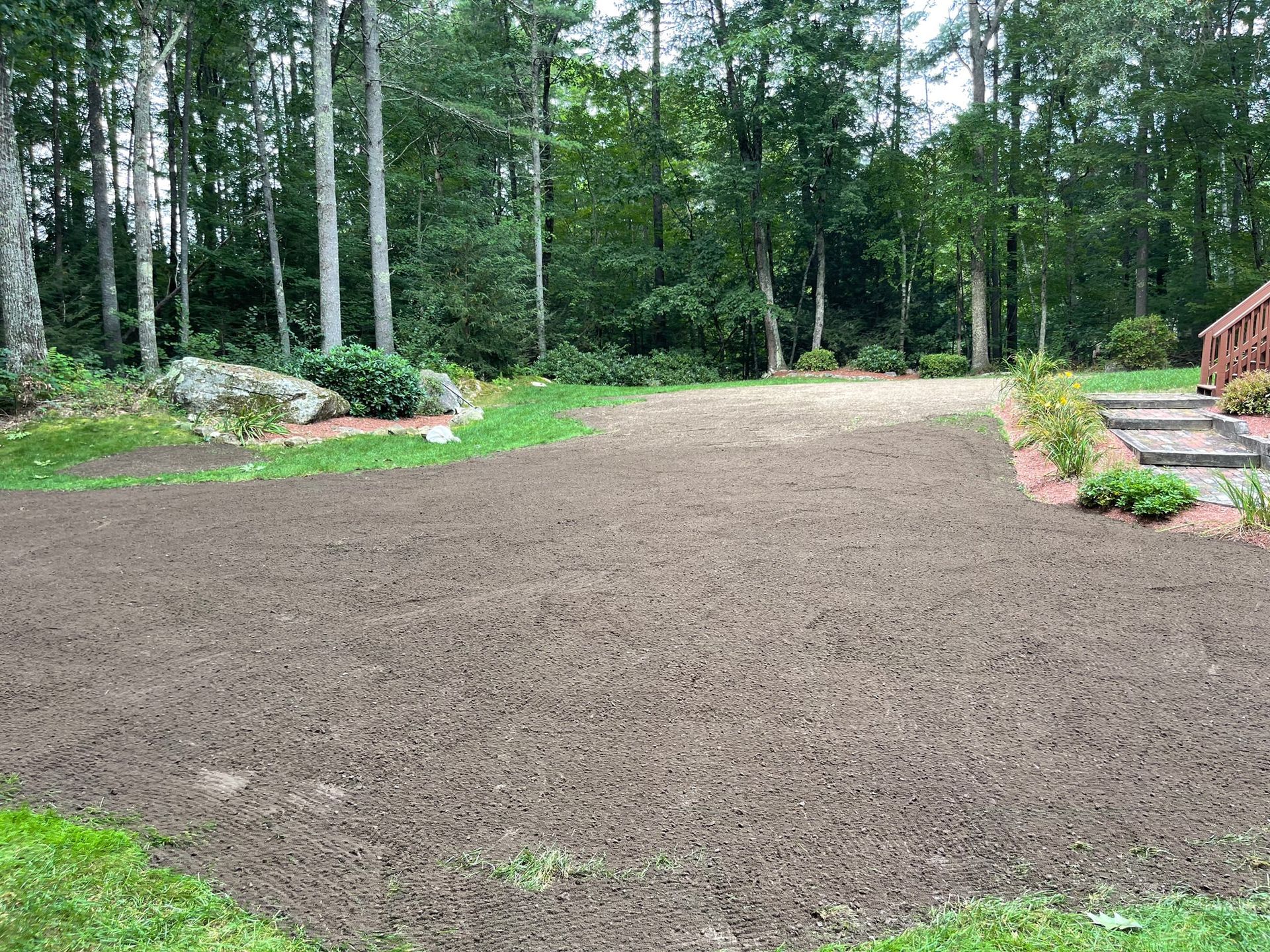
Installation and Repair
RCI Septic Service offers both installation and repair solutions for septic systems. With specialized services, they ensure that your septic system is installed correctly and any necessary repairs are performed efficiently.
Regular maintenance and prompt repairs can save homeowners from costly repairs eventually in the long run, ensuring that issues are fixed before they escalate and become broken.
Financing Options
RCI Septic Service collaborates with St. Mary’s Bank to offer flexible financing options for septic system projects. These financing options are designed to accommodate various septic system expenses, including installations and significant repairs.
By partnering with St. Mary’s Bank, RCI Septic Service makes it easier for homeowners to manage the costs associated with septic system care.
Summary
Regular septic tank maintenance is crucial for preventing system overloads, avoiding health hazards, and enhancing the lifespan of your septic system. Recognizing the warning signs early and scheduling regular inspections can save you from costly repairs and ensure the efficiency of your system. By regulating water usage and disposing of waste properly, you can maintain the health of your septic system and avoid backups. For more information on how your septic tank works, visit our detailed guide.
RCI Septic Service offers professional services to help manage your septic system’s needs, from pump-outs to installations and repairs. With their expertise and flexible financing options, you can ensure your septic system operates smoothly and efficiently. Take action today to maintain your septic system and protect your investment.
Frequently Asked Questions
How often should I pump my septic tank?
You should pump your septic tank based on your household size: annually for large households, every two years for medium, and every three years for small households. Regular maintenance helps prevent issues and ensures optimal functioning.
What are common signs that my septic tank needs draining?
If you notice slow drains, foul odors, or sewage backup, it's a clear indication that your septic tank needs draining. Addressing these signs promptly can help you avoid more serious issues and expenses.
What causes septic tank issues?
Septic tank issues are primarily caused by tree roots invading pipes, improper waste disposal, and excessive water usage. Effectively managing these factors is essential for maintaining your system's efficiency.
What services does RCI Septic Service provide?
RCI Septic Service provides septic pump-out, installation, repair, and replacement services, along with flexible financing options.
How can I maintain a healthy septic system?
To maintain a healthy septic system, ensure regular maintenance, proper waste disposal, and control water usage while scheduling routine inspections. This proactive approach will help prevent costly repairs and prolong the system's lifespan.
